Getting in Mint Condition—6 Tips for Instant Herb Gardens
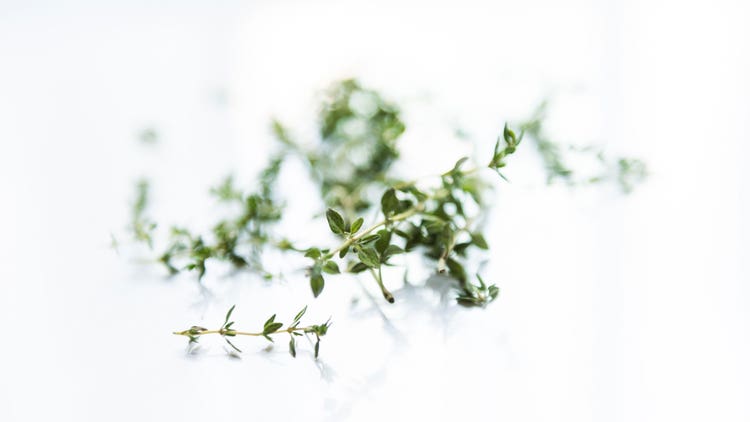
Fresh herbs should be a staple in the summer kitchen—and garden. Just imagine tomato and mozzarella salad devoid of basil, vegetable pizza minus oregano or grilled chicken without rosemary. Not only do fresh herbs add flavor and color, but they also supply nutrients. Equally important, these benefits come without the sugar and sodium characteristic of most bottled sauces and marinades.
“There is some evidence that adding a wide variety of herbs to your diet can improve your health,” says Cordialis Msora-Kasago, MA, RD, media spokeswoman for the Academy of Nutrition and Dietetics. “Herbs are a great source of antioxidants that boost immunity, prevent aging and reduce the risk of disease, all while making food taste great.”
While different herbs possess distinct nutritional profiles, Msora-Kasago cites evidence that oregano, mint, sage and thyme contain the highest concentrations of antioxidants. Meanwhile, Rachel Begun, MS, RDN, points out that, in general, “green-leaved herbs contain varying levels of vitamins A, C and K, as well as phytonutrients.”
Instead of trekking to the grocery store each time you’re in need of a few sprigs, why not start your own herb garden? After all, herbs are easy to grow—provided you’re armed with the below tips. Read on for guidance from gardening experts, then get growing!
1. Pick your herbs
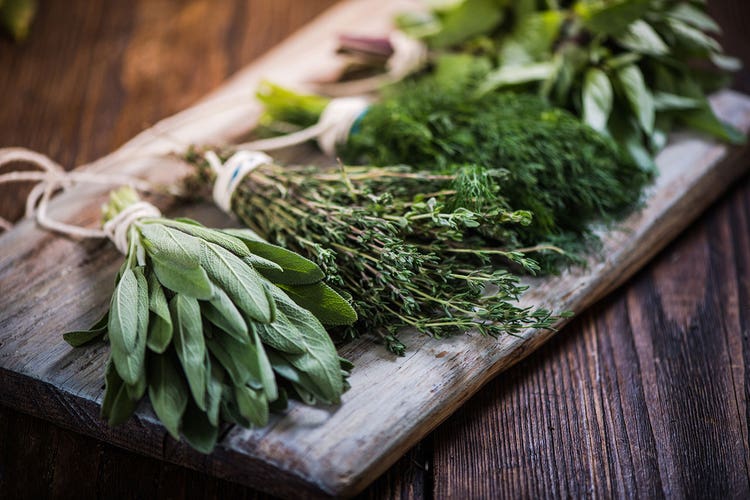
“Begin with the top five herbs you are going to use,” counsels Amy Fewell, author of “The Homesteader’s Herbal Companion” (Lyons Press, 2018). “You don’t need 100 herbs in your garden or on your back deck. Decide whether you’re using these herbs just for culinary uses or if you want them to cross over into medicinal use, as well. (For example, peppermint tea works well for nausea and indigestion or … sore muscles.) Once you’ve mastered those top five herbs, add a few more the following year. Before you know it, you’ll have your dream herb plot!”
To expand your horizons, Shelley Levis, author of “Countertop Gardens” (Cool Springs Press, 2018), recommends growing herbs you may not find regularly at the grocery store, such as tarragon and chervil. Similarly, Niki Jabbour, author of “Veggie Garden Remix” (Storey Publishing, 2018), suggests cultivating varieties that are new to you (such as lemon balm, lemon verbena, Vietnamese coriander, mojito mint and chamomile). She also advocates themed herb gardens, such as for herbal tea (with mint, lemon balm and chamomile), barbecue (rosemary, oregano, parsley, cilantro and basil) or pizza (basil, oregano and rosemary).
If you’re a beginner, consider opting for (virtually) foolproof types. “Basic perennial herbs (which come back each year) are pretty easy to grow—even for those without green thumbs,” Fewell says. Jabbour suggests parsley, thyme, oregano, chives, basil, rosemary and mint (with the caveat that mint should be planted in pots rather than garden beds because it is invasive).
For the quickest time-to-table, purchase seedlings or transplants (usually in 4- to 6-inch pots), says Leslie F. Halleck, author of “Gardening Under Lights” (Timber Press, 2018). Then transfer them to garden beds or containers. Jabbour often purchases seedlings of slower-growing perennial varieties (such as rosemary). In general, Halleck says, annual herbs (which live for one season only) will grow more quickly initially, while perennial herbs will grow more slowly but last longer. If you plan to harvest often, Jabbour advises, plant more of your favorite types.
2. Decide where to grow them
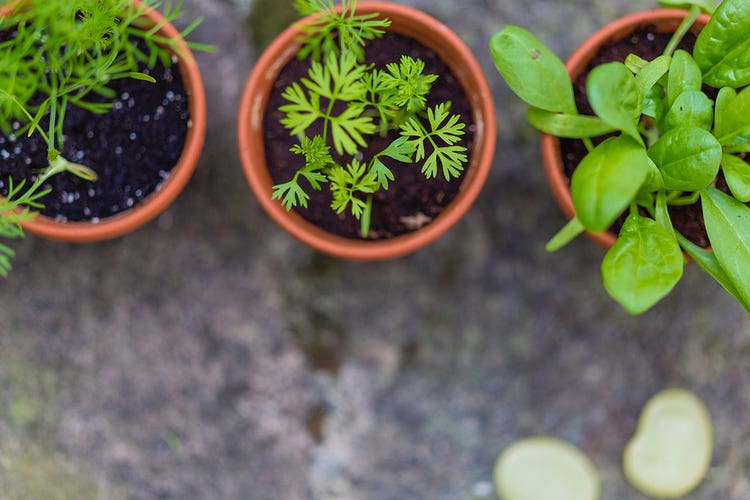
“Putting the right plants in the right place is always key to growing success,” Halleck says. In general, growing herbs outdoors is ideal because doing so provides them with ample sunlight. “Most herbs planted outdoors are extremely forgiving, especially if planted in a flower bed or garden area where they can spread their roots,” Fewell says. Although planting herbs in the ground encourages their growth, cultivating in containers allows you to bring herbs inside during colder months. Containers also take up less space, Halleck says, and allow you to plant different varieties together. Just be sure to mix types that require the same amounts of light and water, she advises.
All that said, indoor gardens do enable us to “grow what we want when we want regardless of the time of year or weather,” Levis points out. If gardening indoors, provide herbs with copious light—whether it comes from the sun (ideally on a southern-facing windowsill) or grow lights (such as LED or T5 HO fluorescent lamps), Halleck counsels. “Most herbs need at least eight hours of full sun per day,” says Jabbour, who adds that low-light varieties (such as mint, parsley, dill and lemon balm) tend to thrive indoors. Still, be aware that “certain herbs (such as rosemary and basil) are prone to aphids and other pests when grown inside,” she says.
3. Water correctly
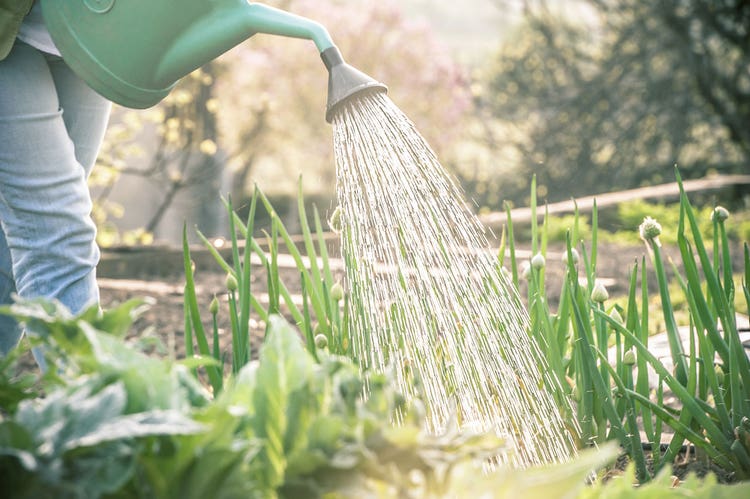
“ Make sure you aren’t over- or under-watering your herbs,” Fewell says. Halleck adds, “Drought-tolerant herbs, such as rosemary and oregano, don’t require a lot of water—too much can kill them. Other herbs, such as mint, love extra water and will fry if conditions get too dry or too sunny.”
Fewell says that over-watering is a major problem for indoor herb gardeners and can encourage the habitation of white flies and other insects. “Pay attention to the leaves,” she counsels. “They will tell you everything you need to know about the plant. If the leaves begin turning yellow, you have too much water. If the leaves are slightly dry and scorched, they don’t have enough water or are getting too much sunlight.” Levis adds, “ As a rule of thumb, keep your soil as moist as a damp wrung-out sponge.”
4. Harvest regularly

“Herbs are meant to be harvested often,” Halleck says. After all, “frequent harvesting encourages fresh growth, so don’t be shy about pinching and clipping your homegrown herbs,” adds Jabbour, who suggests not removing more than one-quarter of a plant at one time. Remember to remove flowers, as well, Halleck says.
5. Clean and store
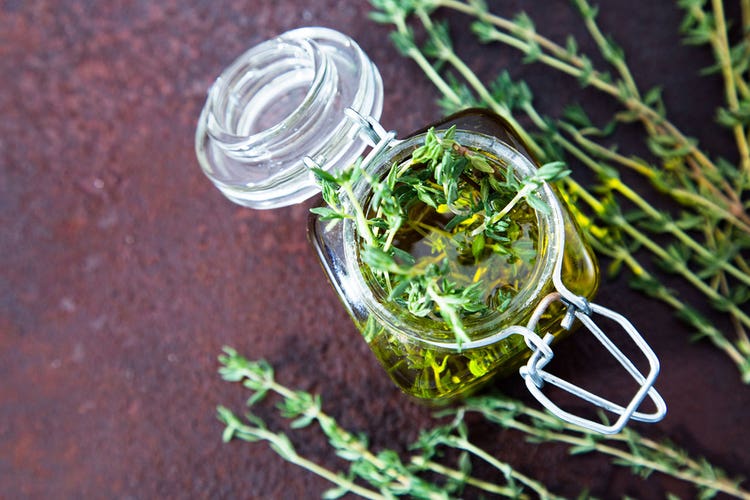
“Snip herbs right before cooking for the freshest flavor and greatest nutrition possible,” Begun advises. To clean them, use a salad spinner, then dry with a paper towel. When storing herbs with tender leaves (such as cilantro, basil and parsley), cut the stems and submerge in a couple of inches of water in a jar. Then cover the leaves with a plastic bag and place in the fridge. For herbs with hardy leaves (such as rosemary and thyme), Begun continues, wrap them in a damp paper towel and place in a sealed plastic bag. Refrigerate.
6. Grow your confidence
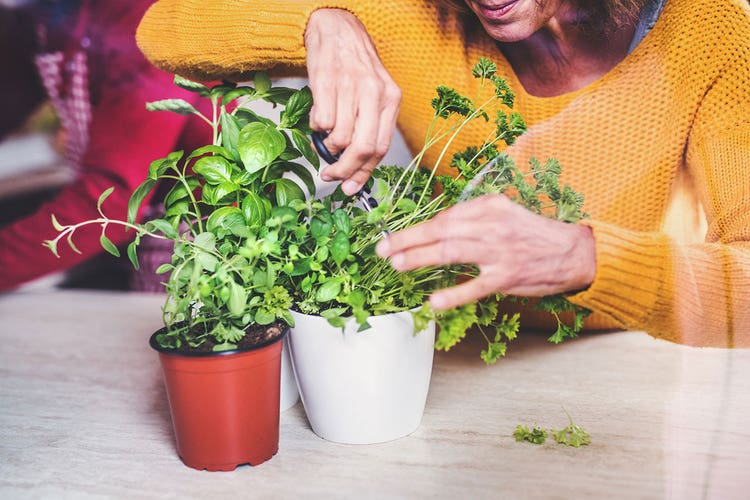
“No one is born with a ‘green thumb.’ They are all earned!” Halleck says. “As with any pursuit, good gardening skills come with practice. One of the best ways you learn to grow a plant the right way is to kill it a few times. Then you learn what works and what doesn’t. Never feel guilty if you happen to kill some of your herbs. The great thing about growing plants is that you can start again and get it right the next time.”
Photo credit: Mark Kuroda, kurodastudios.com; merc67, Thinkstock; Markus Spiske, Unsplash; as3d, Thinkstock; Martin Poole, Thinkstock; Ivannag82, Thinkstock; Halfpoint, Thinkstock